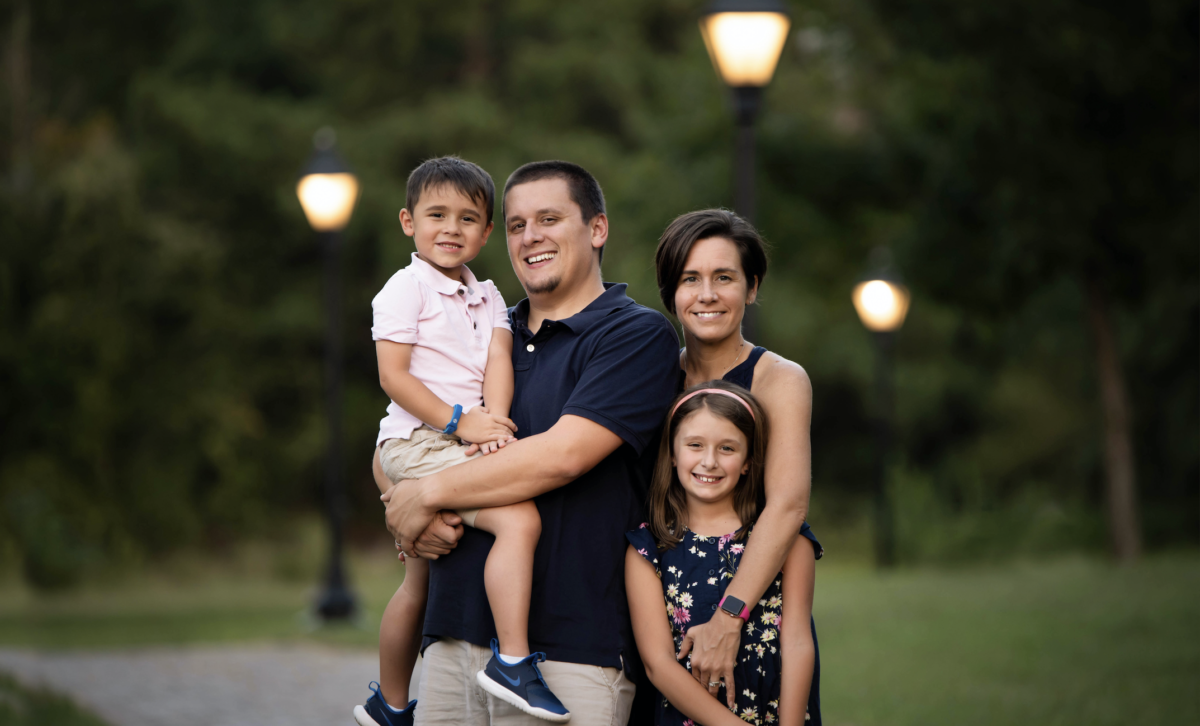Throughout Nathan’s early childhood months, Brad and Misty noticed that their son was delayed in hitting many milestones that every parent looks forward to – sitting up, rolling, walking, and beginning to talk. After a visit with a physical therapist who noted the large size of Nathan’s calves, they were directed to a pediatric neurologist who diagnosed Nathan with Duchenne Muscular Dystrophy (DMD) – a progressive, rare genetic neuromuscular disorder which affects the skeletal, heart and breathing muscles in young boys.
Receiving Nathan’s diagnosis and learning about DMD was really tough. When you become a parent, you have many hopes and dreams for your child and what their life will be like, and this diagnosis robbed us of so much of that.
Nathan, now 6, has a team of doctors in place to help manage the disease and his symptoms. Every 6 months he goes to a clinic to see a physical therapist, occupational therapist, pulmonologist, cardiologist, social worker, and dietician. The main thing that Nathan’s lead doctor advises, is to let Nathan be a kid as much as possible.
We do as much as we can to let Nathan be a kid, but it can be overwhelming planning for all the considerations needed that allow him to partake in life like other boys his age. We have to limit his activity and encourage him to take breaks as his legs become sore and tired out quickly. We carry Nathan up and down sets of stairs and he is pulled around in a wagon to help him get around his elementary school.

As Nathan’s parents and caregivers, Brad and Misty play a vital role in not only taking care of Nathan, but being his advocate. There are many different paths to take when it comes to considering treatment options or clinical trials and it can be overwhelming to know what the right answer is and how it will impact Nathan down the road. It can also be isolating at times to not have a support system in place.
There are lots of great resources out there for families whose loved ones are living with DMD, but I wish we had more opportunities to connect with people in the DMD community locally. It’s not always easy for others to understand what we’re going through, and you can feel completely alone at times.
Brad stays hopeful through the work he does with different DMD advocacy groups and organizations, talking to and educating others about DMD and making as many memories as he can with his family. Brad is motivated by his son and hopes that by making just one more person knowledgeable about DMD it can help to spread awareness of the disease.
My advice to any other family dealing with this is to take it day by day, do as much research as possible, and connect with others. I hope that someday there will be a cure for DMD, and no other family will have to go through this.